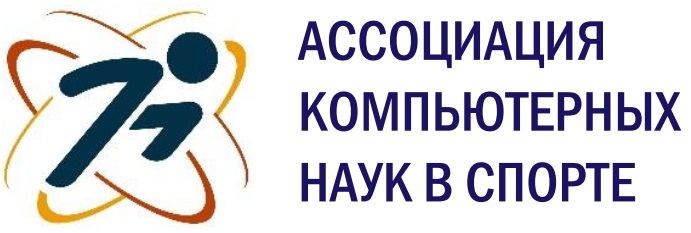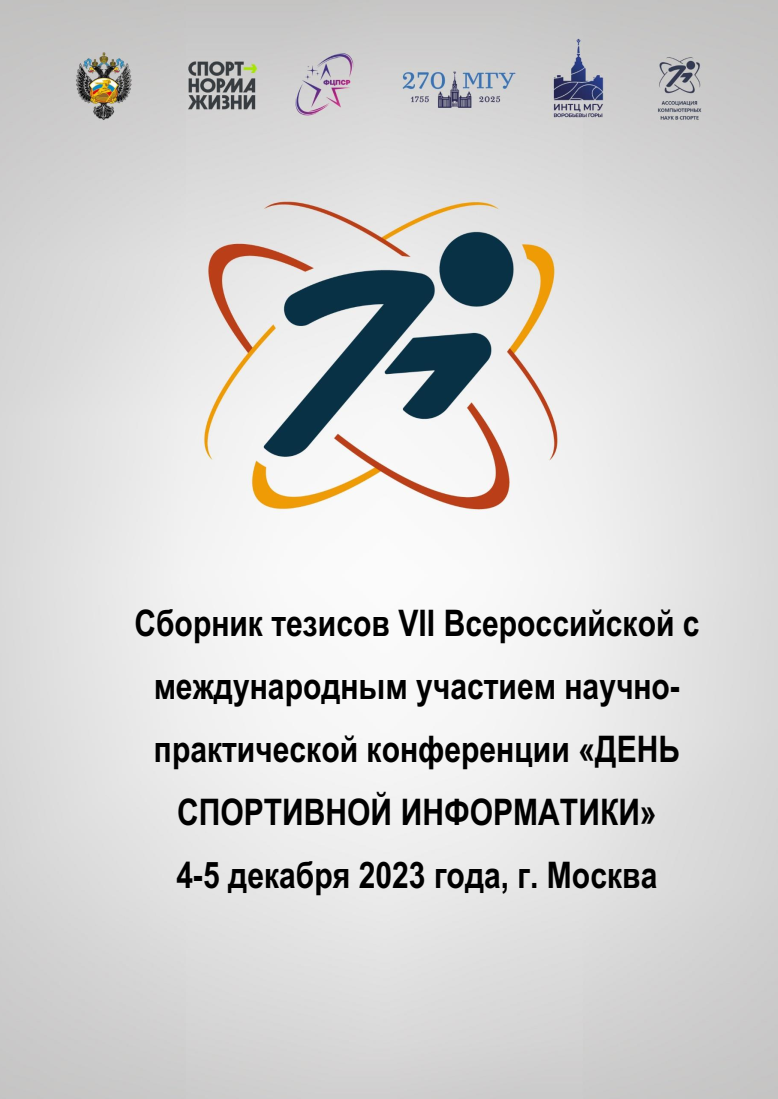VAK Russia 5.2.3
VAK Russia 5.8.4
VAK Russia 5.8.5
VAK Russia 5.8.6
VAK Russia 5.8.7
VAK Russia 1.1.10
VAK Russia 1.2.1
VAK Russia 1.2.2
VAK Russia 1.2.3
VAK Russia 1.5.5
VAK Russia 2.2.11
VAK Russia 2.2.12
VAK Russia 2.3.1
VAK Russia 2.3.4
VAK Russia 2.3.8
UDC 338.012
UDC 338.2
UDC 796
UDC 004
UDC 796/799
CSCSTI 06.75
CSCSTI 28.23
CSCSTI 28.17
CSCSTI 28.01
CSCSTI 77.05
CSCSTI 77.29
CSCSTI 77.31
CSCSTI 80.37
CSCSTI 20.53
CSCSTI 20.01
CSCSTI 50.33
CSCSTI 50.41
CSCSTI 30.51
Russian Classification of Professions by Education 02.04.01
Russian Classification of Professions by Education 02.06.01
Russian Classification of Professions by Education 31.08.39
Russian Classification of Professions by Education 49.02.01
Russian Classification of Professions by Education 49.06.01
Russian Classification of Professions by Education 12.02.06
Russian Library and Bibliographic Classification 75
Russian Library and Bibliographic Classification 6539
Russian Library and Bibliographic Classification 73
Russian Library and Bibliographic Classification 606
Russian Trade and Bibliographic Classification 2352
Russian Trade and Bibliographic Classification 4614
Russian Trade and Bibliographic Classification 4618
Russian Trade and Bibliographic Classification 4612
Russian Trade and Bibliographic Classification 2301
Russian Trade and Bibliographic Classification 3015
Russian Trade and Bibliographic Classification 5106
Russian Trade and Bibliographic Classification 518
Russian Trade and Bibliographic Classification 5182
Russian Trade and Bibliographic Classification 5185
Russian Trade and Bibliographic Classification 762
Russian Trade and Bibliographic Classification 7623
BISAC COM059000 Computer Engineering
BISAC COM012000 Computer Graphics
BISAC COM014000 Computer Science
BISAC COM072000 Computer Simulation
BISAC COM017000 Cybernetics
BISAC COM062000 Data Modeling & Design
BISAC COM018000 Data Processing
BISAC COM021030 Databases / Data Mining
BISAC COM071000 Digital Media / Video & Animation
BISAC COM023000 Educational Software
BISAC COM025000 Expert Systems
BISAC COM074000 Hardware / Mobile Devices
BISAC COM032000 Information Technology
BISAC COM077000 Mathematical & Statistical Software
BISAC BUS021000 Econometrics
BISAC GAM001000 Board Games
BISAC GAM016000 Fantasy Sports
BISAC GAM004050 Gambling / Sports
BISAC EDU039000 Computers & Technology
BISAC EDU036000 Organizations & Institutions
BISAC EDU037000 Research
BISAC EDU027000 Statistics
BISAC MED084000 Sports Medicine
BISAC MED078000 Public Health
BISAC MED076000 Preventive Medicine
BISAC HEA046000 Children's Health
BISAC HEA006000 Diet & Nutrition / Diets
BISAC HEA034000 Diet & Nutrition / Food Content Guides
BISAC HEA002000 Aerobics
BISAC HEA017000 Diet & Nutrition / Nutrition
BISAC HEA007000 Exercise
BISAC HEA010000 Healthy Living
BISAC HEA038000 Work-Related Health
BISAC MAT011000 Game Theory
BISAC MAT029030 Probability & Statistics / Regression Analysis
BISAC MAT025000 Recreations & Games
BISAC SPO003000 Baseball / General
BISAC SPO068000 Business Aspects
BISAC SPO077000 Children’s & Youth Sports
BISAC SPO061020 Coaching / Football
BISAC SPO061030 Coaching / Soccer
BISAC SPO011000 Cycling
BISAC SPO063000 Equipment & Supplies
BISAC SPO073000 Field Hockey
BISAC SPO015000 Football
BISAC SPO016000 Golf
BISAC SPO075000 Health & Safety
BISAC SPO024000 Juggling
BISAC SPO040000 Soccer
BISAC SPO066000 Sociology of Sports
BISAC SPO047000 Training
BISAC SPO051000 Water Sports
BISAC PSY012000 Education & Training
BISAC PSY042000 Assessment, Testing & Measurement
Sports federations as non-profit organizations play an important role in the development of the public sector and the development of selected sports, being responsible for their popularization and development. They are a powerful potential and tool for solving problems in the field of physical culture and sports that are not solved by state and municipal sports institutions. Sports federations as actors are the most mobile in terms of communication with both the state and business. In the Russian practice of state support for sports, budgetary funds constitute the predominant part in the financial support of regional sports federations, which cannot but affect the final extent of their financing: with a limited budget, the more sports federations, the less each of them can receive. In this case, the chosen budget policy can either help in the development of sports or lead to decline. Therefore, the formation of clear and objective rules for obtaining a certain amount of financial support from the state is an important factor in fair competition for resources. This study proposes a model for the distribution of financial resources among sports federations. The model is built on objective, measurable and verifiable indicators that characterize the quantitative and qualitative characteristics of athletes, personnel potential and organizational abilities. All indicators are calculated in relation to each other, and the starting point for calculations is the athlete who is enrolled in the sports school. At the output, the model forms a balanced system, the relationships within which change when the quantitative and (or) qualitative characteristics of the indicators change, as well as a logically sound order of financing for each specific sport.
distribution of resources, financing of sports federations, zero-sum game
1. SHulikovskaya V.V. Teoriya igr [Game theory]. Izhevsk, Bon Anca, 2016. - 304 p (in Russian).
2. Artyuhov V.V. Obshchaya teoriya sistem: samoorganizaciya, ustojchivost', raznoobrazie, krizisy. 4-e izd [General Systems Theory: Self-organization, Stability, Diversity, Crises. 4th ed.]. M., LENAND, 2019. - 224 p (in Russian).
3. Litvin A.V., SHulikovskaya V.V., Arkalov D.P. Methodology for the distribution of budget funding by type of sport (sports federations) in the region: using the example of the Udmurt Republic. Finansovaya ekonomika [Financial Economics], 2018, No 5, pp. 74-79 (in Russian).











